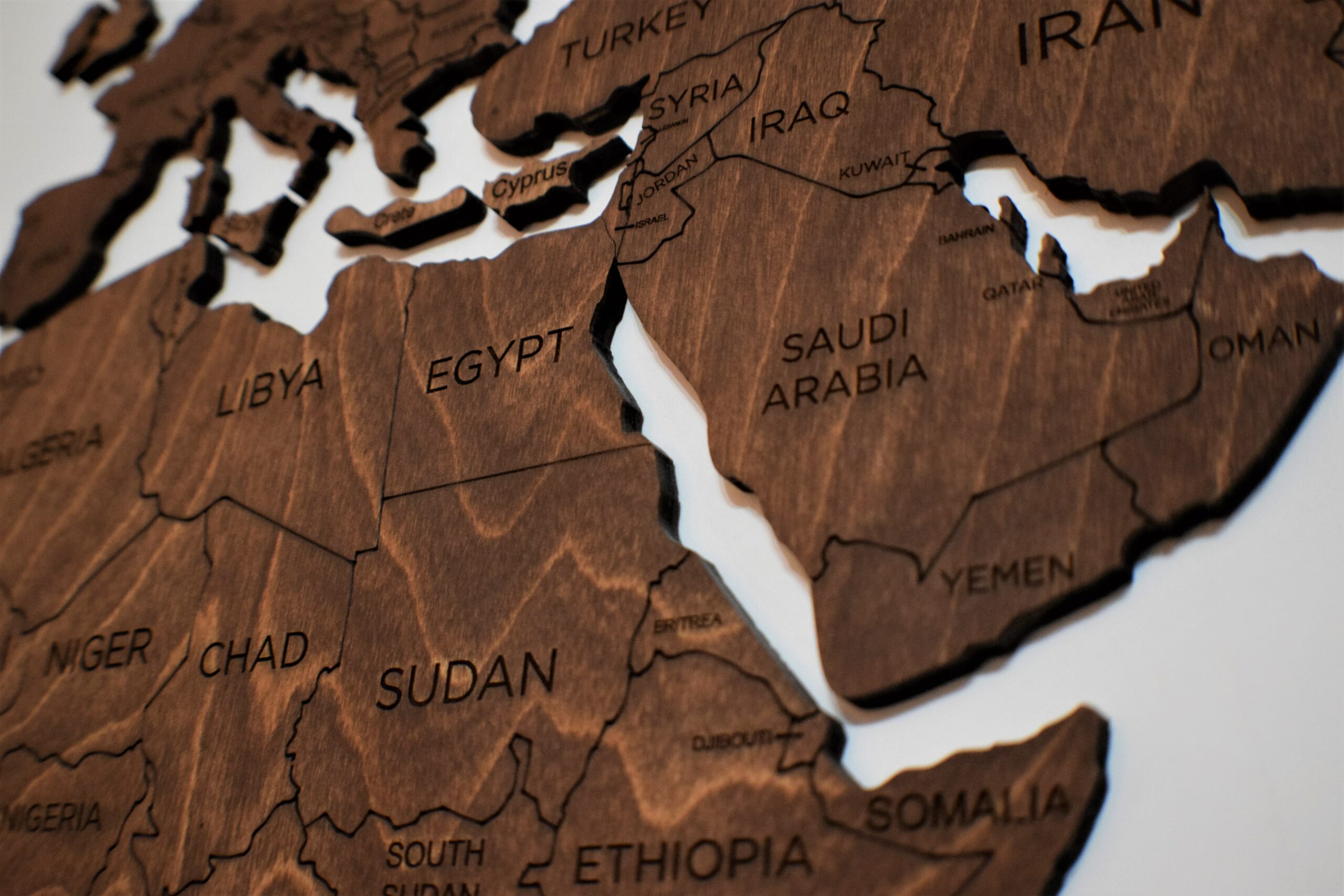
Chad is one of the lowest-income countries in the world, ranked 187th out of 189 countries in the 2020 Human Development Index. 42%[1] of the population lives below the poverty line and only one in five adults can read and write. This precarious social situation is based upon a pattern of political corruption and weak government institutions, but also, violent clashes between ethnic tribes.
Oppression, manipulation, violence and extreme poverty instead of stability and prosperity
In December 1990, then-President Idriss Déby Itno led a coup d'état against the regime of Hissene Habré that brought him to the head of the Central African state. However, this event did not pave the way to stability and prosperity. Instead, Déby's reign was characterized by suppression of all opposition, manipulation of the political system – such as amending the constitution and removing presidential term limits –, violence, assassinations and extreme poverty.[2] This conglomeration of abuse of political power and negligence led to the formation of several rebel groups. The most prominent is the Libyan-based rebel group Front For Change and Concord in Chad (FACT)[3], whose sole aim was to topple Déby from his position of power. In 2006, 2008, and again in 2019, Déby faced various rebel forces advancing into the capital Ndjamena in an attempt to overthrow him. After several unsuccessful attempts, his downfall came in April 2021 when the news of him seeking a sixth term in office was announced. FACT fighters crossed the border from Libya and attacked a military garrison. According to government sources, Idriss Déby joined his army on the front lines and was killed in the clashes shortly after he was declared president of the country.
Illegal seizure of power leads to renewed turmoil
After Idriss Déby's death, his son Mahamat Idriss Déby Itno was named de facto interim president on April 20, 2021, at the head of a newly formed military council. He dissolved parliament and promised free and democratic elections within 18 months, which still have not taken place. The military junta faces political and civil opposition. Demonstrators filled the streets of Ndjamena and other cities, denouncing the illegal takeover of power. The military council responded by firing on protesters, resulting in several deaths and hundreds of arrests – most recently in October 2022. The FACT has also taken a stand against the new head of state, stating that "Chad is not a monarchy and there can be no dynastic transfer of power in our country." [4] Nevertheless, France, Chad's former colonial power, supported this seizure of power.[5] Chad is central to the French army, not only because of its geopolitical location, but most importantly because it is the base for Operation Barkhane in the fight against Islamic terrorism. Macron has backed the coup to maintain the necessary status quo for military intervention in the Sahel region.
Peace talks between military government and opposition groups
In April 2022, Mahamat Déby called for peace talks in Qatar aimed at forming a civilian-led government.[6] Delegations from a total of 47 opposition and rebel groups took part in this national dialogue[7], including FACT. The peace talks resulted in an agreement signed on August 8 between the country's military government and 42 opposition groups. In the agreement, the latter pledged to participate in more extensive talks in Ndjamena to set the framework for the elections promised by Déby for October. FACT, though, refused to sign the agreement on the grounds that their demands, such as the release of prisoners, had not been met.[8] At the same time, however, the FACT signaled further willingness to talk.
Political stability in Chad depends on the creation of an inclusive and democratic framework. Déby's death could have been a catalyst for the restructuring of the political arena, breaking the cycle of instability and turmoil. The likelihood of political change and the chance for lasting peace will depend in no small part on whether the FACT can be incorporated into this peace process after all.
Analyses of the CONIAS conflict database and its previous versions clearly show that peace agreements only have a chance of lasting implementation if all the relevant conflict parties are working together.[9] A single exception can lead to the failure of even the best and most balanced treaties. For more information about CONIAS Risk Intelligence, please contact our team of experts.
About the author:
Konstantina Chalkiopoulou
CONIAS Risk Intelligence Team
Michael Bauer International GmbH
Sources:
[1] https://www.hrw.org/world-report/2022/country-chapters/chad; https://www.wfp.org/countries/chad
[2] https://africacenter.org/spotlight/chads-ongoing-instability-the-legacy-of-idriss-deby/
[3] Originally: Front pour l’alternance et la concorde au Tchad
[4] https://www.aljazeera.com/news/2021/4/21/who-are-chads-fact-rebels-and-what-are-their-goals
[5] https://internationalviewpoint.org/spip.php?article7637
[6] https://www.france24.com/en/live-news/20220808-chad-military-government-signs-deal-to-launch-peace-talks
[7] https://www.dw.com/de/tschad-regierung-und-rebellen-unterzeichnen-friedensabkommen/a-62742761
[8] https://www.reuters.com/world/africa/chad-rebels-sign-peace-deal-2022-08-08/
[9] Schwank, Nicolas and Rohloff, Christoph (2001): War is over – conflict continues? Conditions for stable conflict outcomes. Uppsala Conflict Data Conference. Uppsala, pp. 1-19; Pfetsch, Frank R. (2006): Verhandeln in Konflikten Grundlagen - Theorie - Praxis, Wiesbaden, VS Verlag für Sozialwissenschaften.


